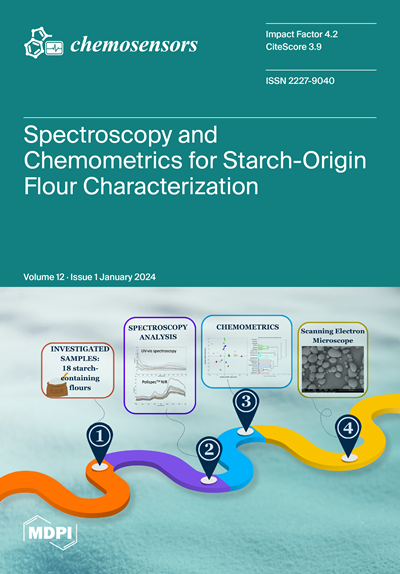一种新的监测YAP/TAZ蛋白在细胞中稳定性的HiBiT生物传感器的研制
IF 3.7
3区 工程技术
Q2 CHEMISTRY, ANALYTICAL
引用次数: 0
摘要
Hippo信号级联在多种癌症中经常失调,如乳腺癌症(BC),这是女性最常见的恶性肿瘤之一。在BC亚型中,三阴性BC(TNBC)因其预后差和转移潜力高而脱颖而出。尽管进行了旨在确定治疗方案的广泛研究,但现有疗法对TNBC的疗效有限。最近,人们已经认识到,靶向Hippo通路的核心成分(YAP及其旁系TAZ)是开发抗癌治疗的一种很有前途的策略。然而,美国食品药品监督管理局尚未批准YAP/TAZ抑制剂作为抗TNBC的治疗方法,并且只有少数化合物被鉴定为直接影响YAP和TAZ的活性和稳定性,以增强创新的HiBiT生物传感器用于监测细胞中YAP和TAZ的前景。利用这些生物传感器,我们进行了涉及279种化合物的小规模药物筛选,从而鉴定了几种能够在不同TNBC细胞系中诱导YAP/TAZ降解的小分子抑制剂(SMIs)。值得注意的是,一些药物可能会在长期治疗后间接影响蛋白质的稳定性,未来可以缩短暴露时间,以确定具有更直接影响的候选药物。然而,我们的研究引入了一种评估YAP和TAZ水平的新方法,这对开发抗TNBC靶向疗法具有重要意义。本文章由计算机程序翻译,如有差异,请以英文原文为准。
Development of a New HiBiT Biosensor Monitoring Stability of YAP/TAZ Proteins in Cells
The Hippo signaling cascade is frequently dysregulated in a variety of cancers, such as breast cancer (BC), which is one of the most commonly diagnosed malignancies in women. Among BC subtypes, triple-negative BC (TNBC) stands out due to its poor prognosis and high metastatic potential. Despite extensive research aimed at establishing treatment options, existing therapies demonstrate limited efficacy for TNBC. Recently, it has been recognized that targeting the core components of the Hippo pathway (YAP and its paralog TAZ) is a promising strategy for developing anti-cancer treatment. However, no YAP/TAZ inhibitors have been approved by the FDA as anti-TNBC treatments, and only a few compounds have been identified that directly affect YAP and TAZ activity and stability to enhance the prospect of innovative HiBiT biosensors for monitoring of YAP and TAZ in cells. Employing these biosensors, we conducted a small-scale drug screen involving 279 compounds, leading to the identification of several small molecule inhibitors (SMIs) capable of inducing YAP/TAZ degradation in diverse TNBC cell lines. It is worth noting that some drugs may indirectly affect the protein stability following prolonged treatment, and a shorter exposure can be included in the future to identify drug candidates with more direct effects. Nevertheless, our study introduces a novel approach for assessing YAP and TAZ levels, which can have significant implications for developing anti-TNBC targeted therapies.
求助全文
通过发布文献求助,成功后即可免费获取论文全文。
去求助
来源期刊

Chemosensors
Chemistry-Analytical Chemistry
CiteScore
5.00
自引率
9.50%
发文量
450
审稿时长
11 weeks
期刊介绍:
Chemosensors (ISSN 2227-9040; CODEN: CHEMO9) is an international, scientific, open access journal on the science and technology of chemical sensors published quarterly online by MDPI.The journal is indexed in Scopus, SCIE (Web of Science), CAPlus / SciFinder, Inspec, Engineering Village and other databases.
 求助内容:
求助内容: 应助结果提醒方式:
应助结果提醒方式:


